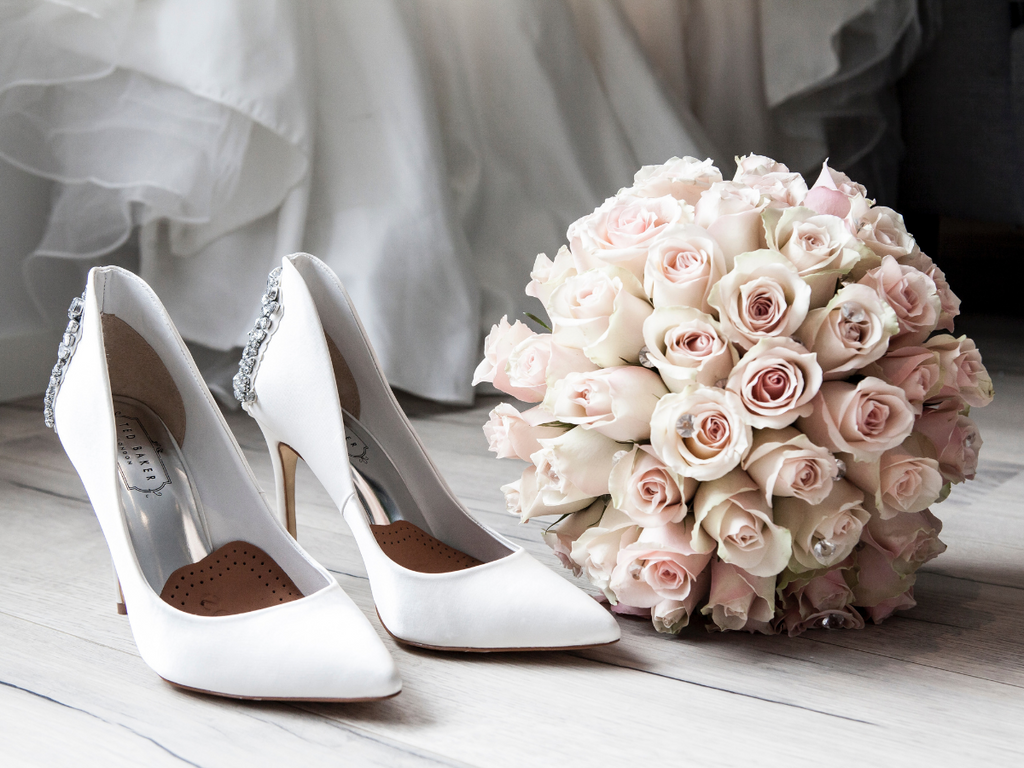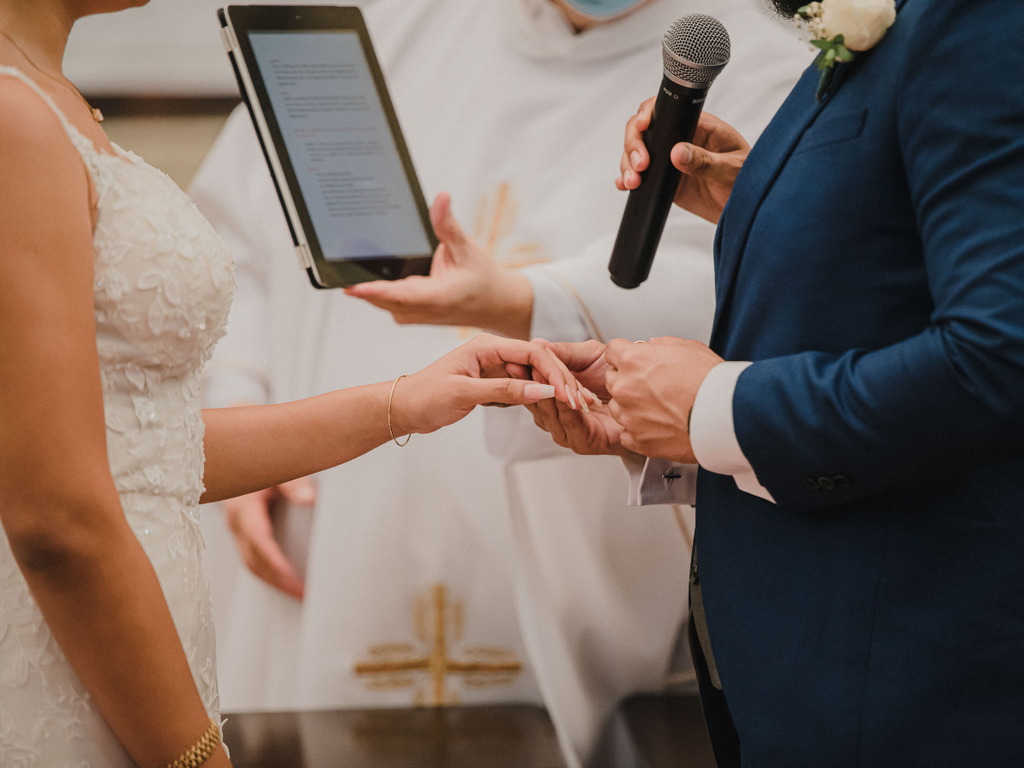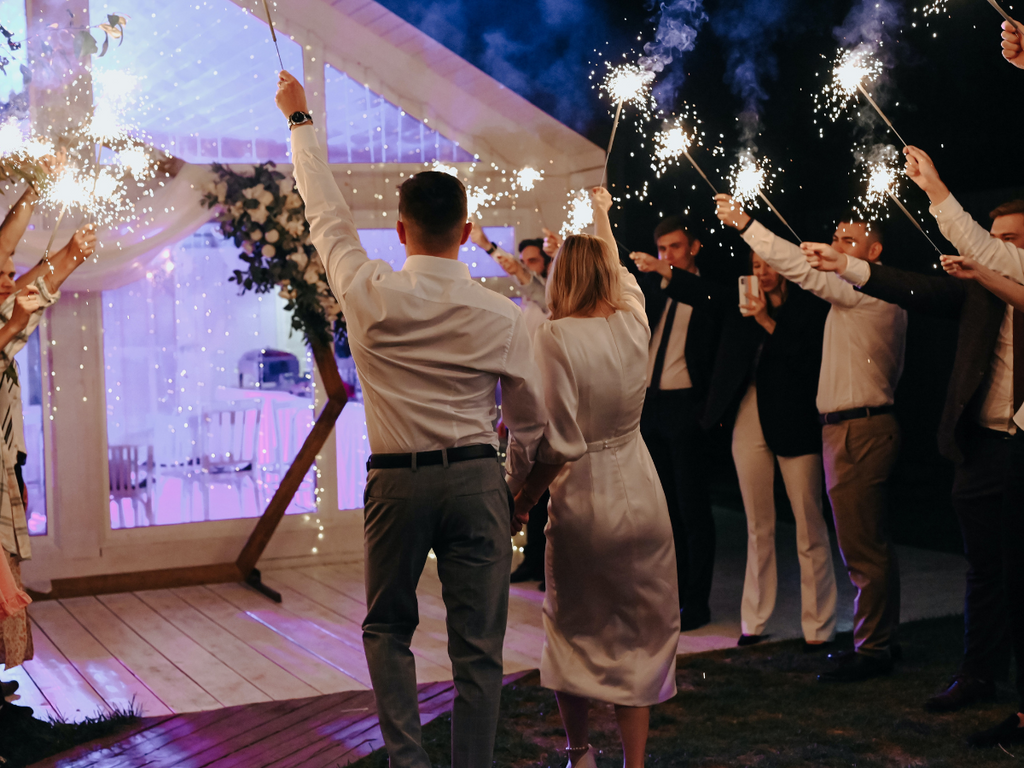Planning a wedding is one of the most exciting, but equally stressful events in your life. From choosing the perfect dress to selecting a venue, there are so many details to consider.
To help you navigate through the process, we’ve compiled a comprehensive guide to answer some of the most frequently asked questions - including how to find a wedding speechwriter for your vows and thank you speech.
How do I start planning my wedding?
Before you start planning, sit down with your partner and discuss your vision for the big day. Consider your budget, guest list, and preferred location. This will help you determine what kind of wedding you want, and how much you’re willing to spend.
Next, start researching potential venues and vendors. Make sure to read reviews and get referrals from friends or family members who’ve recently gotten married. Create a timeline, and decide on a date for your wedding.
How long before a wedding should you start planning?
It’s best to start planning your wedding at least 12-18 months in advance. This gives you plenty of time to secure a venue, book vendors, and iron out any other details. Keep in mind that popular venues and vendors tend to get booked quickly, so it’s important to start planning as soon as possible.
What is a good budget for a wedding?
The average cost of a wedding in Australia is around $30,000, but your budget will depend on your preferences and the size of your guest list. Be realistic about what you can afford, and make a list of your priorities. Consider allocating more money towards elements that are important to you, such as the dress or the food.

What are the 5 things a bride needs?
In addition to the Victorian tradition, there are five essential things every bride needs to bring her luck are:
Something old
This item represents the bride's past and her family history. It could be a piece of jewellery that has been passed down through generations, a family heirloom, or even a vintage piece of clothing.
Something new
This item represents the bride's future and the new life she is beginning with her partner. The bride may choose to incorporate something new into her outfit, such as a new piece of jewellery or a brand-new pair of shoes.
Something borrowed
This item represents the bride's support system and the friends and family members who will be there for her on her wedding day. The bride may choose to borrow a special item from a family member or friend, such as a piece of jewellery or a veil.
Something blue
This item represents the bride's loyalty and faithfulness to her partner. The bride may choose to incorporate something blue into her wedding day outfit, such as a blue garter or a blue piece of jewellery.
A sixpence in her shoe
The last item in the traditional rhyme is "a sixpence in your shoe." This is often interpreted as a symbol of wealth and prosperity for the couple.
While it's not as commonly practised as the other items, some brides still choose to incorporate a sixpence into their wedding attire, either by wearing a real sixpence in their shoe or by using a decorative charm.
In reality, we would argue that the real 5 things every bride needs are:
- A dress she feels beautiful in
- A partner she is excited to exchange vows with
- Comfortable shoes to dance the night away
- Music that will set the mood for the party of the year
- Supportive friends and family to share the day with

How does a wedding go step by step?
Guests arrive
Once your guests have arrived and taken their seats, it's time for the ceremony to begin. The ceremony is the heart of any wedding, and it's important to make sure it goes smoothly.
The wedding ceremony
The wedding ceremony typically starts with the processional, where the wedding party and the bride make their way down the aisle. The order of the processional can vary depending on your personal preference, but traditionally, the order goes like this:
- Officiant
- Groom and Best Man
- Groomsmen and Bridesmaids (paired up)
- Maid/Matron of Honour
- Flower Girl and Ring Bearer (if applicable)
- Bride and her escort (father, mother, both parents, or other loved one)
Once the wedding party is in place, the ceremony begins. The officiant will welcome everyone and give an opening statement. From there, the ceremony can include readings, musical performances, or any other elements that the couple chooses.
One popular wedding tradition is the exchanging of vows. The vows are a chance for the couple to publicly declare their love and commitment to each other. Some couples choose to write their own vows, while others use traditional ones.
After the vows, it's time to exchange rings. The wedding rings are a symbol of the couple's love and commitment, and they are typically worn on the ring finger of the left hand.
The ceremony concludes with the pronouncement of marriage and the kiss. The newlyweds will then make their way back up the aisle, followed by the wedding party.
The wedding reception
After the ceremony, it's time to celebrate! The reception is a chance for the newlyweds to mingle with their guests and enjoy some delicious food and drinks. The reception typically includes a meal, speeches, and dancing.
One popular wedding tradition is the first dance. The newlyweds take to the dance floor for their first dance as a married couple. This is often followed by the father-daughter dance and the mother-son dance.
Another popular tradition is the cutting of the cake. The couple will cut a slice of cake together and feed it to each other.
During the reception, there may also be speeches from the wedding party and family members. The speeches are a chance for loved ones to share their congratulations and well wishes with the newlyweds.
The reception concludes with the send-off, where the newlyweds make their way out of the venue and onto their next adventure as a married couple.
Who gives speeches at a wedding?
There are typically several people who give speeches at a wedding, including:
Father of the Bride
Traditionally, the father of the bride gives the first speech of the night, in which he welcomes guests, thanks them for attending, and expresses his love and pride for his daughter.
Groom
The groom typically gives a speech after the father of the bride, in which he thanks the guests for attending, expresses his love and gratitude for his new spouse, and talks about their journey together.
Best Man
The Best Man is usually the last person to give a speech, and his role is to offer a toast to the newlyweds. He may also share humorous stories about the groom and offer advice for the couple's future.
Maid of Honour
The Maid of Honour may also give a speech, typically after the Best Man. Her role is similar to that of the Best Man, but with a focus on the bride.
Other family members or friends
Depending on the wedding, other family members or friends may also give speeches, such as the mother of the bride or a close friend of the couple.
It's important to keep in mind that the number of speeches and who gives them can vary depending on cultural or personal preferences. Some couples may choose to have only a few speeches, while others may open up the floor to anyone who wants to say a few words.
If you're unsure about the speeches at your wedding, don't be afraid to ask your wedding planner or consult with a professional wedding speechwriter for guidance.
What do you say in a wedding speech?
In a wedding speech, you typically want to start by introducing yourself and your connection to the bride or groom. From there, you can share anecdotes or stories about the couple, offer words of wisdom or advice for their future, and express your love and well wishes for them.
Some people also choose to include a quote or poem that is meaningful to the couple. Ultimately, the content of your speech will depend on your personal relationship with the newlyweds and what you want to say to them on their special day. If words aren't your strong suit, consider partnering with a wedding speechwriter.

What makes a good speech at a wedding?
A good wedding speech is one that is heartfelt, sincere, and personal. It should be well-rehearsed but not overly rehearsed so that it feels natural and genuine when delivered.
A good speech should also be appropriate for the occasion and the audience, meaning it should be clean and inoffensive. It's important to strike a balance between humour and sentimentality, so that the speech is engaging and memorable without being too over-the-top.
Finally, a good speech should be delivered with confidence and clarity, so that everyone in the room can hear and appreciate your words.
If you're stuck on what to say in your wedding speech, don't be afraid to seek the help of a professional wedding speechwriter.
Where can I find a wedding speechwriter?
If you're in need of a heartfelt and memorable speech for your special occasion, Monday & Co's wedding speechwriter can help.
Whether you're the Best Man or Maid of Honour, the Father of the Bride, or someone looking to deliver the perfect vows to your partner, our friendly team of professional wedding speechwriters can provide the support and guidance you need to create a truly exceptional speech.
With our collaborative approach and commitment to customer satisfaction, you can be confident that your speech will be crafted with care and attention to detail, ensuring that it truly reflects your personality and feelings.
So why not take advantage of Monday & Co's service that can partner you with a professional wedding speechwriter to craft a heartfelt speech that you and your loved ones will cherish for years to come?
